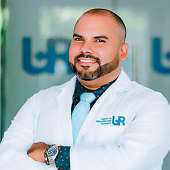Preserving fertility when diagnosed with cancer
Cancer in women remains a matter of concern worldwide. In Spain, the most common cancers are lung cancer, breast cancer and colorectal cancer, altogether totalling 32%. Thanks to early diagnosis, the survival rate – which is of vital importance – has gone from 56% to 63%.
Thus, along with this advance, we must consider the survivors’ quality of life. International societies have considered this to be of such importance that, in the last 10 years, reproduction centres have worked closely with oncologists, radiation oncologists and surgical oncologists in an effort to ensure, to the extent possible, fertility in women who have not yet had children.
When cancer is diagnosis, there is an urgent need to begin cancer treatments, reduce the risk of metastases or residual cancer. However, preventing the reproductive effects of these treatments will improve the possibility of having children in the future.
Multiple studies have determined that the effect on fertility is dose-dependent. In other words, with each chemotherapy or radiation therapy treatment, the number of eggs available decreases. Therefore, it is imperative either to protect the ovaries from the medication’s harmful effects, or to protect the eggs. Once chemotherapy treatments begin, a cascade of accelerated depletion of the follicular pull takes place. This leads to premature ovarian failure, in which patients may experience effects from very irregular menstrual cycles or absence of menstruation to symptoms related to menopause.
The reasons for the harmful effect of these treatments lie in:
- The decrease in the number of primordial follicles
- The imbalance of the hypothalamus-hypophysis-ovarian axis
- Hypofunction of the fallopian tubes, ovaries and cervix
- Ovarian cortical fibrosis and blood-vessel damage.
The team will recommend the best treatment available based on the patient’s age, whether she is single or has a partner, the type of cancer and the prognosis, the prior fertility status, the time available before cancer treatment begins, the patient’s desires and the medical and legal implications of the process. It is important to recognise patients’ right to their prognosis, desires, beliefs and values, which will help in choosing the best fertility-preserving treatment.
At our centres, the multidisciplinary team will provide orientation on the current recommendations for preserving fertility in these patients, including:
- Use of medication to protect the ovaries
- Freezing the eggs before beginning cancer treatments or radical surgery
- Freezing embryos, if the patient has a partner
- Freezing and transplantation of ovarian tissue
- Conservative cancer surgery
- Transposition of ovaries in the event of a pelvic tumour
The most common reasons for not preserving fertility in patients who will receive cancer treatments is the lack of knowledge of the alternatives for reproduction, the carcinophobia of patients wanting to get treated quickly without considering the quality of life after the their cancer is cured, the fear of delaying treatments for a couple of weeks while the ovaries are stimulated to remove and then freeze the eggs and last – but not least – the fear of stimulating ovaries in some cancers due to the “theoretical risk” of metastatic cell infiltration of the ovaries. Researchers recommend taking special care with certain tumours, such as stage III breast cancer (including infiltrating ductal), Wilms’ tumour, lymphomas, osteosarcoma, Ewing’s sarcoma, leukaemia, euroblastomas, cervical adenocarcinoma and colon cancer.
The best decisions are made when patients are informed
In general, we recommend waiting two years after the disease-free period before beginning to try to get pregnant, whether by thawing the eggs and fertilising them with their partner’s semen, or by thawing the embryos stored at the centre, carrying out the transplant from the ovaries or by beginning controlled ovarian stimulation.
There has been no increase shown in the rates of congenital malformations or neonatal diseases associated with the use of chemotherapy, so pregnancy is safe after the oncology team discharges the patient. If fertility was not preserved before cancer treatment, it must be determined by hormone tests, the follicular pull available and the assessment of the patient in terms of her using her own eggs or turning to egg donation to become pregnant.
In the case of men, the method is much simpler: laboratory tests and a seminogram are carried out, consents signed and a preventive freezing of the sperm is done. If semen quality is not very good, it must be frozen for subsequent use in an IVC, whether conventional or with ICSI.
At our centres, we are convinced that the best decisions are made when patients are informed, there is a possibility of having genetic offspring after treatments depending on the timing of the process, the fertility-conservation technique used and the prior reproductive status.





